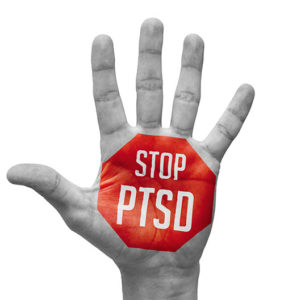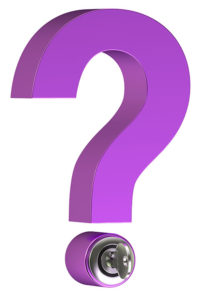What Triggers PTSD Attacks?

Triggers are things that cause you to have symptoms of PTSD. Triggers can range from things in nature to people or mentions of places. For some, there is a clear connection to a traumatic experience in their life, but for others, a link seems lost. The best way to avoid the problems often associated with PTSD is to understand your triggers.
What Are PTSD Attacks?
Before you can understand what triggers PTSD attacks, you must first understand what PTSD attacks are. PTSD is a mental health condition that begins after a terrifying event. Debilitating nightmares, intense flashbacks that are realistic, and uncontrollable and non-stopping thoughts are part of an attack experience. It can feel impossible to adjust after a traumatic event, but with PTSD, it can become even more hopeless. Many people ask how long do PTSD attacks last, and there is no set length for that as each individual’s experience is unique.
What Causes Triggers in PTSD Attacks?
There are many examples of what triggers PTSD attacks. For someone serving in the armed forces during a war, a loud sound like a car backfiring or fireworks can take them back to the place where they were fighting in live combat. A song or the smell of food that a hostage had while in captivity can take them back to that time. Triggers can be anything that makes the individual remember the trauma that they suffered through.
A Look at the Symptoms of PTSD:
There are multiple PTSD symptoms, but we will discuss a few which are common:
- Intrusive Memories – Intrusive memories can have several symptoms, which include memories of the traumatic event, flashbacks, nightmares, emotional distress, and physical reactions.
- Avoidance – Symptoms of avoidance can include not thinking about or talking about the event and not going to places or seeing people that remind them of the event.
- Negative Changes in Thinking and Mood – Many negative changes happen with thinking and mood when you have PTSD. These include negative thoughts about yourself or the world around you, hopelessness when you think about the future, an impossibility to remember things, a hard time with relationships and issues with detachment, a lack of interest in things you enjoyed, an inability to feel positive emotions, and general emotional numbness.
- Changes in Physical and Emotional Reactions – Many physical and emotional changes are related to PTSD. These can include being easily startled or frightened, being on guard, self-destruction, an inability to sleep and concentrate, being aggressive or acting out in anger, and shame or guilt that is overwhelming.
Children can have PTSD just as adults can. In some cases, children re-enact the traumatic event through play or have nightmares that seem unrelated. If you or someone you love are suffering from any of these, you can learn how to stop PTSD attacks.
To read in more detail about all the symptoms of PTSD, check this article out from the Mayo Clinic.
How to Stop PTSD Attacks

What Are PTSD Attacks Like?
PTSD attacks are very intense. They are often debilitating, and when having a seizure, you might not be able to focus on or accomplish anything else. To know in detail what PTSD attacks feel like, check this article out.
Can PTSD Cause Panic Attacks?
Panic attacks and PTSD attacks are not the same. That being said, an intense PTSD attack can lead to a panic attack. For more information, check this article out which discusses this topic in greater depth.
Treatment for PTSD Attacks
Now that you fully understand PTSD attacks, you can begin to consider the following treatment options; for more specifics, look at this article.
- PTSD Therapy – PTSD therapy teaches skills to deal with attacks, improve symptoms, and restore self-esteem.
- Cognitive Behavioral Therapy – CBT teaches how to replace negative thoughts and reactions with positive ones.
- Stress Inoculation Training – SIT is a unique way to teach yourself to relax your body and avoid negative thoughts through breathing and massage techniques.
- Medications – Medications can be used to treat some of the symptoms of PTSD, like anxiety and depression.
- Prolonged Exposure Therapy – PE is a unique process that generally requires fifteen sessions that are each 90 minutes long to teach you skills to reduce your symptoms of PTSD.
- Eye Movement Desensitization and Reprocessing – EMDR is a way of sharing your experience with some distractions happening simultaneously.
 People Also Ask
People Also Ask
What Does a PTSD Attack Feel Like?
PTSD attacks are intense mental health reactions associated with a terrifying event. Some people feel as though they cannot move forward as their thoughts are consumed with the event. Others find it hard to breathe and some feel as though they cannot leave their homes because of the intensity of their anxiety.
Can PTSD Make You Go Crazy?
PTSD is a treatable anxiety-based disorder. While an individual might feel as though they are going crazy, the condition is treatable.
What Are the 4 Stages of PTSD?
- Impact – This is the stage that occurs immediately after the traumatic event.
- Denial – This is the stage where the individual tries to avoid anything to do with the event. Not everyone goes through the denial stage.
- Short-Term Recovery – This is when the individual attempts to adjust to life normally.
- Long-Term Recovery – During this stage, the individual sees a reduction in attacks and symptoms.
PTSD is often a debilitating mental health condition. Here at Evolved Health Services, we have committed and empathetic staff who are dedicated to helping you through your treatment and recovery. Don’t continue living with PTSD attacks and symptoms and contact us today to get the help that you need.
 People Also Ask
People Also Ask